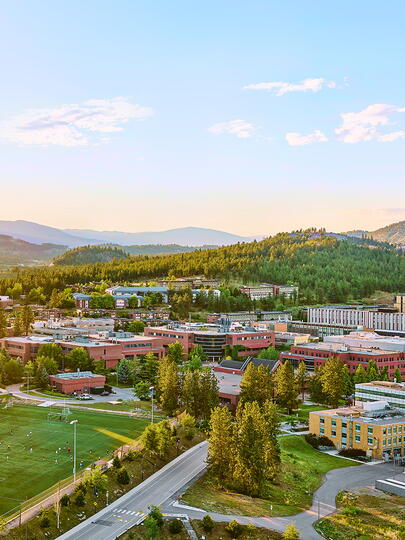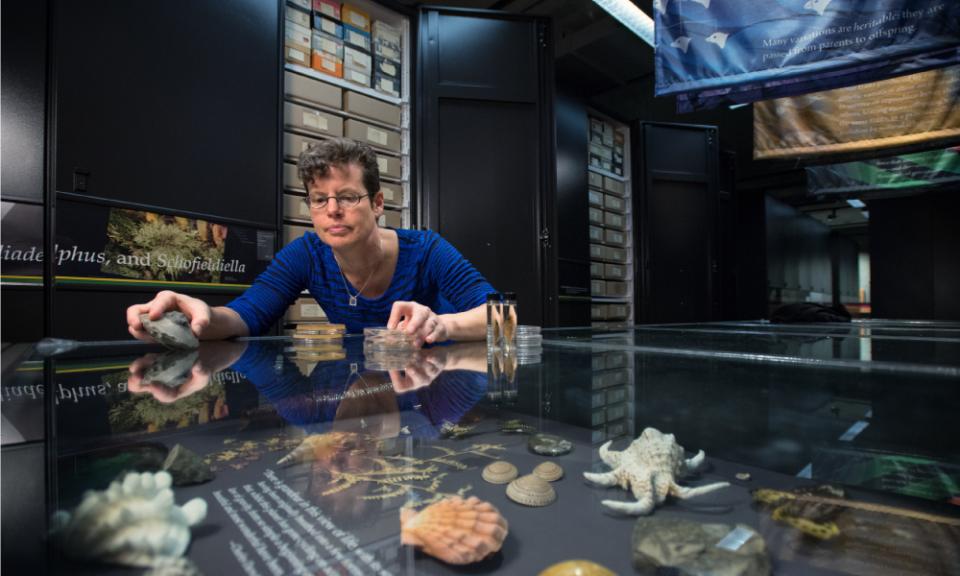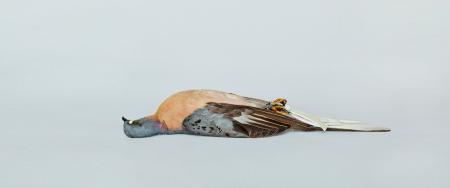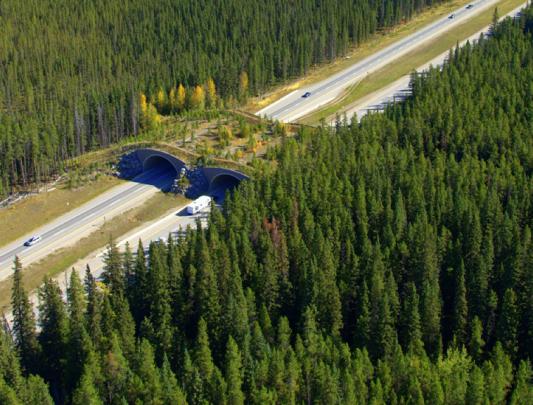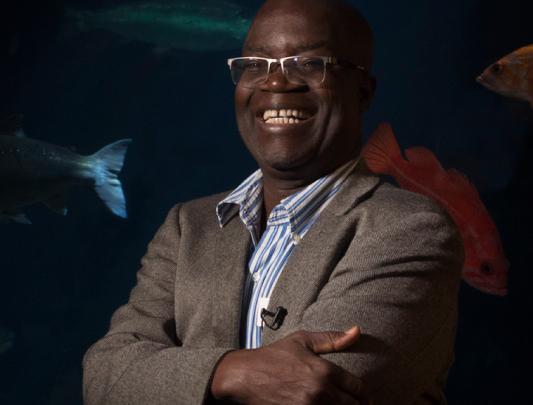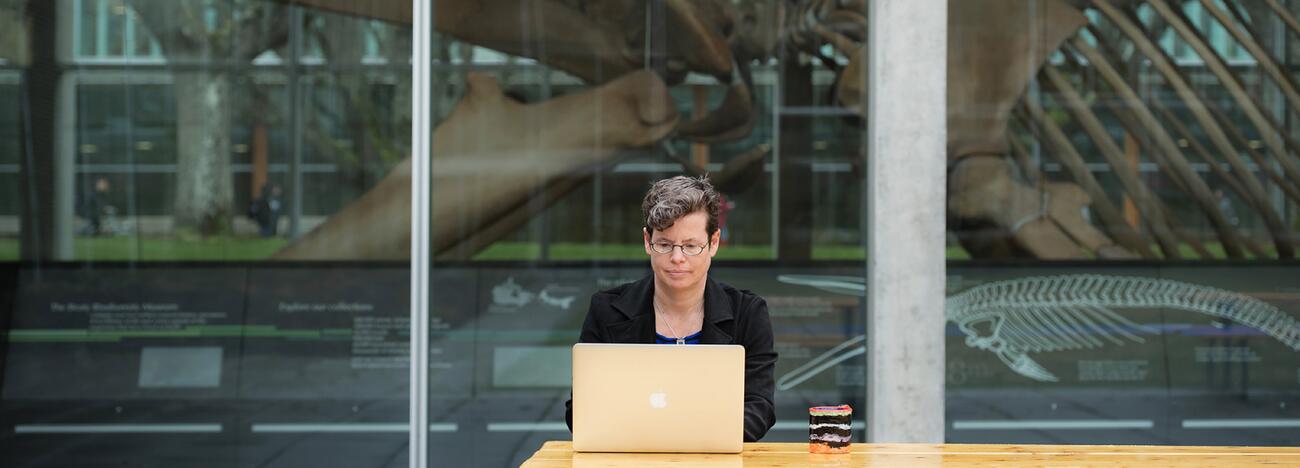
Humans are remaking the natural world – and not in a good way
Reading the warnings of Dr. Sarah P. Otto, you can’t help but envision a world reduced to humans, rats, crows and cockroaches, all squabbling over the last surviving dandelions. In the Anthropocene, it appears that human impact has grown so overwhelming that only a small, hardy and not‑always‑helpful band of human‑tolerant plants and animals may endure with us to the last.
Actually, Otto’s academic writings are less apocalyptic, but no less panic inducing. A UBC theoretical biologist and Canada Research Chair in Theoretical and Experimental Evolution, Otto penned an article last year in the Proceedings of the Royal Society titled “Adaptation, speciation and extinction in the Anthropocene.” It is an understated survey of literature exploring human impacts on the biosphere, and it concludes, in sober but worrying tones, that in everything we do – and in places we don’t even go – humans are changing the natural world in a cumulative and potentially disastrous way. It’s not just that we are cutting down the forests, dispersing the topsoil, overfishing the oceans and overheating the atmosphere. It’s not just the hunting or the pollution. Rather, we have nudged the biological world so hard that even the process of natural selection has changed. As Otto puts it: “Species are not being selected simply for what is ‘good’ in nature; they are being selected for traits that help them survive human influence.”
Despite the dire takeaway, “Sally” Otto (so‑called to differentiate from mother Sarah) looks nothing like a modern‑day Cassandra, cursed to tell a truth that no one wants to hear. Far from dour, Otto is upbeat – effervescent – with a practical but stylish mop of curls and a beaming smile. She’s also frank and entertaining in recounting the indiscretions of a 12‑year‑old Sally, whom few people likely expected to ever take seriously. Born in New York City in 1967, Otto says that she moved houses 18 times in her first 18 years, changing schools nearly as often. Her father was a salesman whose consummate skill seemed to be finding the next job. So, by seventh grade, Otto was pretty disconnected from school and starting to skip, though still turning up for math class. Indeed, after she completed the advanced curriculum, the teacher let her and the other mathletes play cards. And that, she says, “was probably a great way” to learn math and the laws of probability.
Otto confesses that she’s not sure she would have made it through high school, but her mother, Sarah Cutler, could see Sally’s spark. Cutler got her daughter an interview for the International Baccalaureate program at the Washington International School, one of the top-rated private schools in Washington, DC. They, too, recognized Otto’s potential, granting a full scholarship. Soon enough, the erstwhile slacker found herself sitting before chemistry teacher Ingrid Pritchard. “It was miraculous,” Otto says. Mrs. Pritchard began describing a world made of atoms and, for Otto, “it was an instant reveal. For the first time, I could see that there were underlying rules connecting everything around us.”
School became a pleasure, and a mission. Otto went from Washington International to Stanford University, where she chose genetic engineering, thinking – wrongly – that it would involve lots of math. (It was mostly chemistry.) So she tweaked her studies to math and biology, earning a BSc and PhD and going on to claim a staggering list of fellowships and prizes, including, in 2011, a “Genius Grant” from the MacArthur Foundation.
In a cable news world in which everyone is entitled to their own opinion, this raises a reasonable question: What’s a genius? And why, say, should we listen to Sally Otto, rather than acting on our own entitled intuition? For the MacArthur Foundation, a genius is someone with “extraordinary originality and dedication in their creative pursuits and a marked capacity for self‑direction.” It’s not just brilliance. The MacArthur folks are investing in the combination of talent and rigor, innate intelligence and hard work. The Foundation awarded Otto US$500,000, no strings attached, as “an investment in [her] originality, insight, and potential.”
Otto spread the money around like Johnny Appleseed sewing fruit for a prosperous future. She split the first $100k between the Nature Trust of British Columbia and the Nature Conservancy of Canada to protect the Twin Lakes and the Sage and Sparrow Grasslands, both in BC’s Okanagan region. She gave $100K to a hospital in Borneo, Indonesia, that cares for the families of loggers who agree to become forest guardians; Otto describes it as an investment in the complementary health of the human community and the environment. She set up a MITACS Science Policy Fellowship and a Biodiversity Research Centre internship program. And she still has $100,000 in the bank for a yet-to-be-identified final investment.
Beyond her diligence and generosity, Otto’s principal genius appears to flow from her enduring adoration for mathematics. As an expert modeller (she is co‑author with Queen’s University Professor Troy Day of the book, A Biologist’s Guide to Mathematical Modelling in Ecology and Evolution), Otto also loves math for its capacity to break big, complicated issues into manageable, understandable components. She says, “Math is powerful in that way. There aren’t many things that can convince you of how completely wrong you are. It’s so precise. You can be absolutely sure you are right about something, but then you follow it through with a model and find a key piece that you missed.”
Using models that are, in the Einstein tradition, “as simple as possible, but no simpler,” Otto has sought insight or illumination at the micro and macro levels. At the micro level, she interrogates the budding yeast Saccharomyces cerevisiae to help understand species adaptation and mutation. At the macro level, she develops models that have forged new ground and helped explain puzzling patterns in the biological world, such as why so many species reproduce sexually.
We have nudged the biological world so hard that even the process of natural selection has changed. As Otto puts it: “Species are not selecting for what is ‘good’ in nature; they are selecting for traits that help them survive human influence.”
Otto’s models also explore evolution’s limits – and it was in recognition of how hard humans are pushing species beyond these limits that led her to write the Royal Society article mentioned above. It’s based on years of reading that she says left her “absolutely panic‑stricken.” Otto documented the degree to which humans overwhelm nature. Most obviously, we chip away at wild populations by hunting and by encroaching on their habitat: since 1970, we have seen populations of wildlife decline by 60 per cent.
But we also damage the gene pool in odd ways. We trim the population of elephants with the longest tusks, mountain sheep with the biggest horns and foxes with the prettiest coats. Our hook‑and‑line fishing style selects for smaller‑mouthed fish, and our gillnets weed out the boldest and most aggressive genotypes among rainbow trout. In a wild world where initiative was once an advantage, humans have created a niche for laziness. “For example,” Otto writes, “the portion of sedentary individuals within the great bustard populations increased from 17 per cent to 45 per cent over a 15‑year period, with collisions being the major source of death for migrating individuals.” The big birds are so likely to die flying into glassy condo towers that fortune now favours the laggards.
We break up the landscape, isolating species in a way that favours plants that reseed locally and birds that remain put – reducing the connectedness of the biological world. And we recruit hunting partners that also kill not from need but from habit: US pets perpetrate 2.4 billion “cat predation events” every year. Global extinction rates have risen so dramatically that more than one in five species of vertebrates, invertebrates and plants are now at risk of extinction. And climate change is making everything worse. As Otto says, “Humans are pruning the tree of life.”
Yet, she writes, the processes remain dangerously out of our control. “As diseases and their vectors become better adapted to life within our cities, pests become better adapted to our crops, and our prey become better adapted to our means of harvesting. As we have witnessed with the evolution of antibiotic resistance, humans may impose selection, but we will often not retain the upper hand.”
So, Otto says, we need to act, quickly and decisively. “If you were a business owner and you knew big changes were coming – like climate change – you would work hard to ensure your business had the capacity to change and was resilient, with a lot of buffers. Same with the natural world. But by reducing their numbers and fragmenting their populations, we’ve hobbled the capacity of many species to adapt, lessening their resilience as we enter a period of dramatic climate change.”
Regrettably, we’re not responding – not globally and not locally. As a former director of UBC’s Biodiversity Research Centre, Otto has fought hard, and so far unsuccessfully, for endangered species protection in BC. She says, “We imagine biodiversity loss as something that is happening off in Brazil. But we look in this province and we don’t have the laws to regulate and prevent habitat destruction and fragmentation for our most endangered species.” The federal Species at Risk Act only covers federal lands – about one per cent of the province. Thus, “99 per cent of land lacks protection for species at risk. And, as a consequence, we’re watching as many species continue to decline, such as the southern mountain caribou, with two more herds going extinct this year.”
The good news, Otto says, is that some solutions are obvious and actionable. “For example, I love the way we’re becoming conscious of having to densify our urban environment. Let’s expand this thinking to all sectors. Every industry should be asking itself how to succeed without further expanding our human footprint; how can we grow the food we need more efficiently without continuing to expand agricultural lands; how can we capture the most solar, geothermal, and wind energy from within our cities and farms rather than going to another pristine area and destroying it?”
The bad news is that Otto’s warning seems to be landing on deaf ears, not just in BC, where you might expect a New Democratic Party/Green Party coalition to be responsive to environmental issues, but everywhere.
“It’s just too easy to keep hurting nature and hoping for a quick and easy technological fix,” Otto says, “but I don’t think there is a technological solution [for biodiversity loss]. We need a cultural solution. We need to reduce our impacts. We need to live within our means.”
It’s an elegantly simple warning that leaves an unanswered question: will we listen?
Podcast
A million reasons to care: The biodiversity crisis in Canada
One million species around the world are at risk of extinction—many in the next few decades. British Columbia is home to more biodiversity than any other place in Canada. But from our caribou herds to southern resident killer whale pods and from our whitebark pines to Behr's Hairstreak butterflies, we're struggling to safeguard our natural heritage. Hear from world-class researchers, hosted by 2011 MacArthur Fellow Sarah Otto, as they outline the recent science and pinpoint conservation approaches that work. They’ll look at how BC and Canada can help lead the transformational change needed to preserve Earth's threatened biodiversity.
Presented by UBC Faculty of Science
Panelists
- Dr. Sarah Otto - Professor, UBC Faculty of Science, Department of Zoology; UBC Biodiversity Centre
- Dr. Cole Burton - Assistant Professor, UBC Faculty of Forestry; Canada Research Chair (Tier 2) in Terrestrial Mammal Conservation
- Dr. Jeannette Whitton - Associate Professor, UBC Faculty of Science, Department of Botany; Director, UBC Herbarium
Recorded October 8, 2019, at UBC Robson Square in Vancouver, BC.




